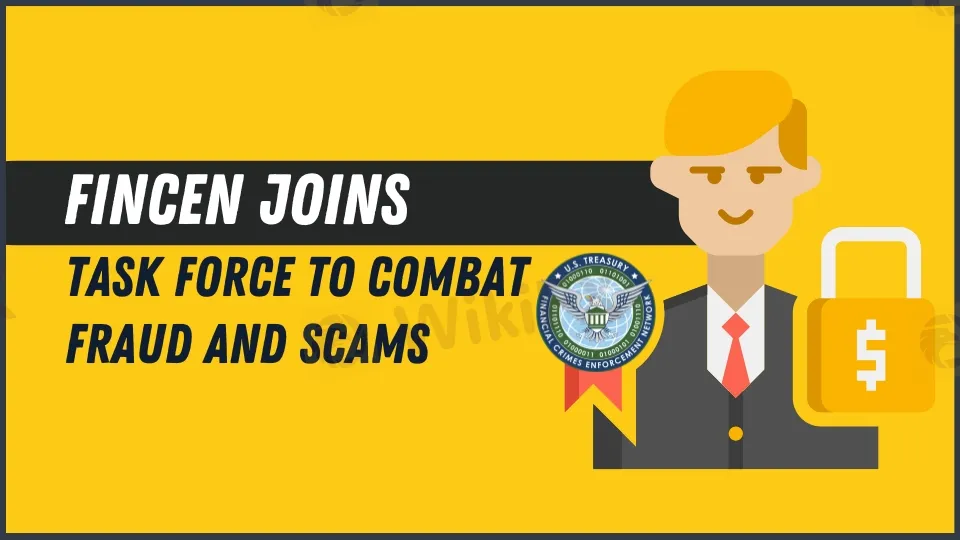简体中文
繁體中文
English
Pусский
日本語
ภาษาไทย
Tiếng Việt
Bahasa Indonesia
Español
हिन्दी
Filippiiniläinen
Français
Deutsch
Português
Türkçe
한국어
العربية
FinCEN Joins Task Force to Combat Fraud and Scams
Abstract:FinCEN partners with national task force to tackle fraud, scams, and illicit finance risks through cross-sector collaboration and public-private partnerships.

FinCEN Expands Collaboration to Tackle Growing Fraud Threats
The U.S. Department of the Treasury's Financial Crimes Enforcement Network (FinCEN) is strengthening efforts to combat fraud and scams by joining the National Task Force on Fraud and Scam Prevention. This task force, coordinated by the Aspen Institute Financial Security Program, unites experts from the financial services sector, technology companies, consumer advocacy groups, and federal agencies.
The collaboration's goal is to create a national plan for combating fraud and scams, which are increasingly jeopardizing financial security, the economy, and national stability. FinCEN will participate to working groups on fraud prevention, detection, recovery, and prosecution as part of its responsibilities. Their engagement demonstrates FinCEN's commitment to increasing public-private partnerships and improving coordination to combat illicit financing concerns.

The Aspen Institute, which launched the task group in July, noted the rising effect of financial fraud and scams on a variety of industries. The task force's objectives include increasing consumer education, identifying and combating fraud, and assisting in legal measures against violators. Ida Rademacher, vice president at Aspen Institute, said that it is critical to provide people with the information and tools they need to secure their wealth.
In addition to the task force, FinCEN has taken aggressive steps to tackle new dangers, such as AI-powered identity theft. FinCEN issued a warning to US banks on November 13 regarding deepfake frauds that employ generative AI to defraud financial institutions. FinCEN revealed more than $688 million in check fraud linked to mail theft earlier this September.
Final Thoughts
The collaboration between FinCEN and the Aspen Institute's task committee is an important step in combating rising fraud and scams. These initiatives, by bringing together experts from many industries, might assist to create a more safe financial climate. Collaboration and education will be critical for safeguarding customers and maintaining the financial system's integrity.

Disclaimer:
The views in this article only represent the author's personal views, and do not constitute investment advice on this platform. This platform does not guarantee the accuracy, completeness and timeliness of the information in the article, and will not be liable for any loss caused by the use of or reliance on the information in the article.
Read more

Georgia Man Charged in Danbury Kidnapping and Crypto Extortion Plot
Georgia man James Schwab charged in Danbury kidnapping tied to $230M crypto heist. Plot targeted couple for ransom after Miami altercation with son.

Bybit Shuts Down NFT Marketplace Amid Crypto Market Downturn
Bybit announces the closure of its NFT marketplace, citing efforts to streamline offerings. Discover the latest trends in the declining NFT market and its shift to utility-based growth.

Galaxy Digital Settles $200M in Luna Token Manipulation Case
Galaxy Digital pays $200M to settle Luna token manipulation probe by NY regulators, linked to TerraUSD’s 2022 crash, impacting crypto market stability.

April Forex Trends: EUR/USD, GBP/USD, USD/JPY, AUD/USD, USD/CAD Insights
Know April’s forex seasonality trends for EUR/USD, GBP/USD, USD/JPY, AUD/USD, and USD/CAD. Historical insights and key levels to watch in 2025.
WikiFX Broker
Latest News
Exposing the Top 5 Scam Brokers of March 2025: A Closer Look by WikiFX
Gold Prices Climb Again – Have Investors Seized the Opportunity?
Webull Launches SMSF Investment Platform with Zero Fees
Australian Regulator Warns of Money Laundering and Fraud Risks in Crypto ATMs
The Withdrawal Trap: How Scam Brokers Lure Victims into Paying More
FCA to Investors: Think Twice Before Trusting These Brokers
Trump\s tariffs: How could they affect the UK and your money
Trump gambles it all on global tariffs he\s wanted for decades
TradingView Brings Live Market Charts to Telegram Users with New Mini App
HTFX Spreads Joy During Eid Charity Event in Jakarta
Currency Calculator







